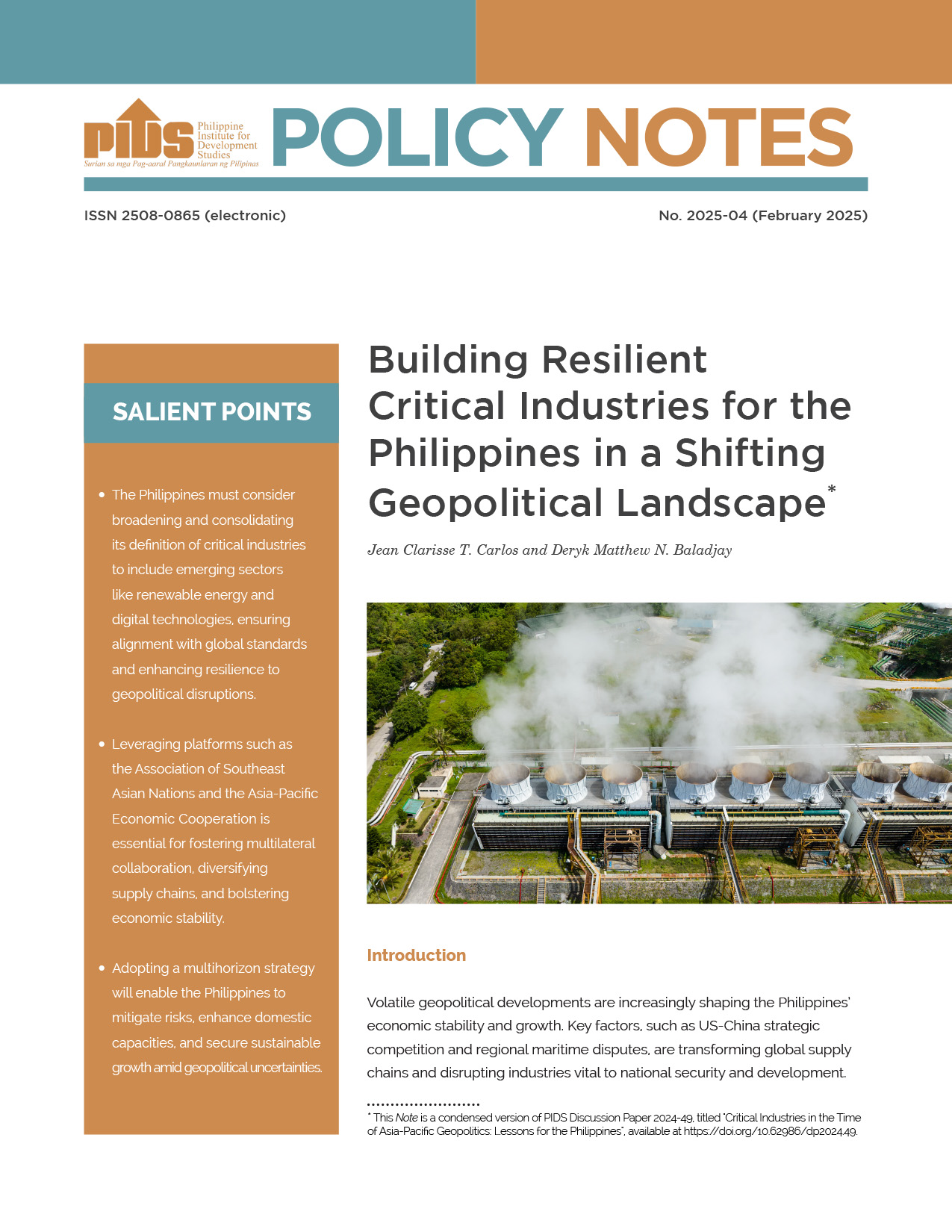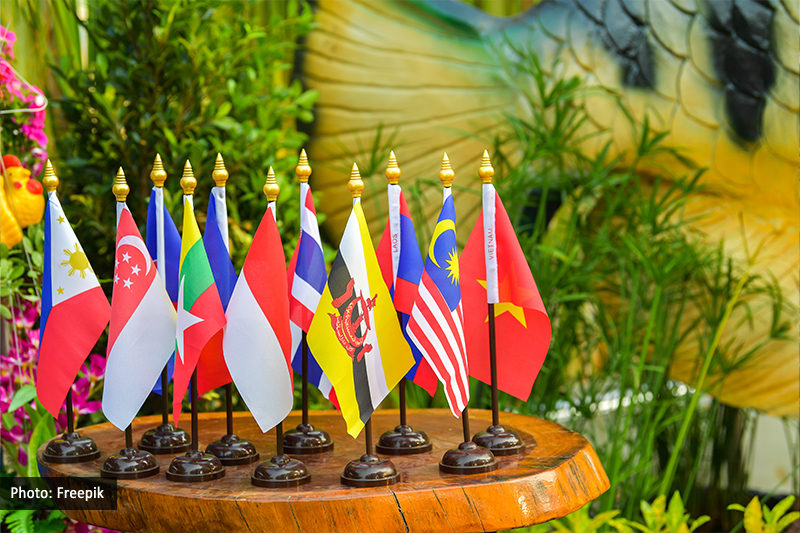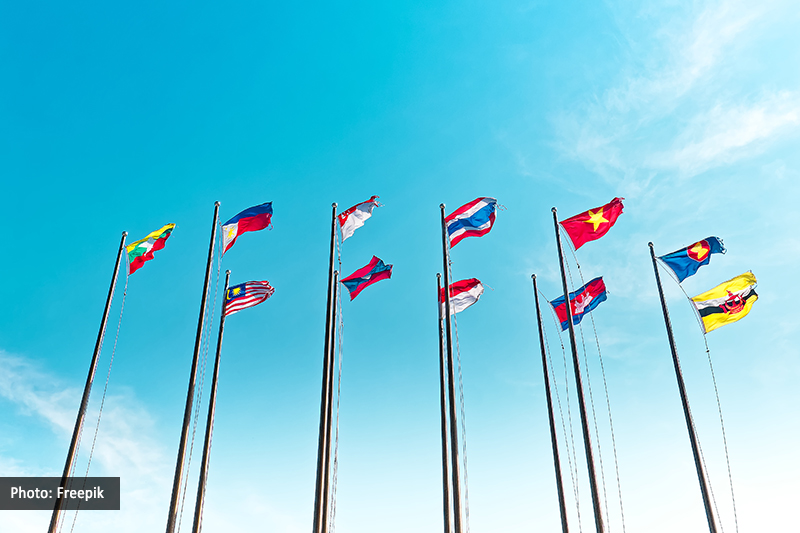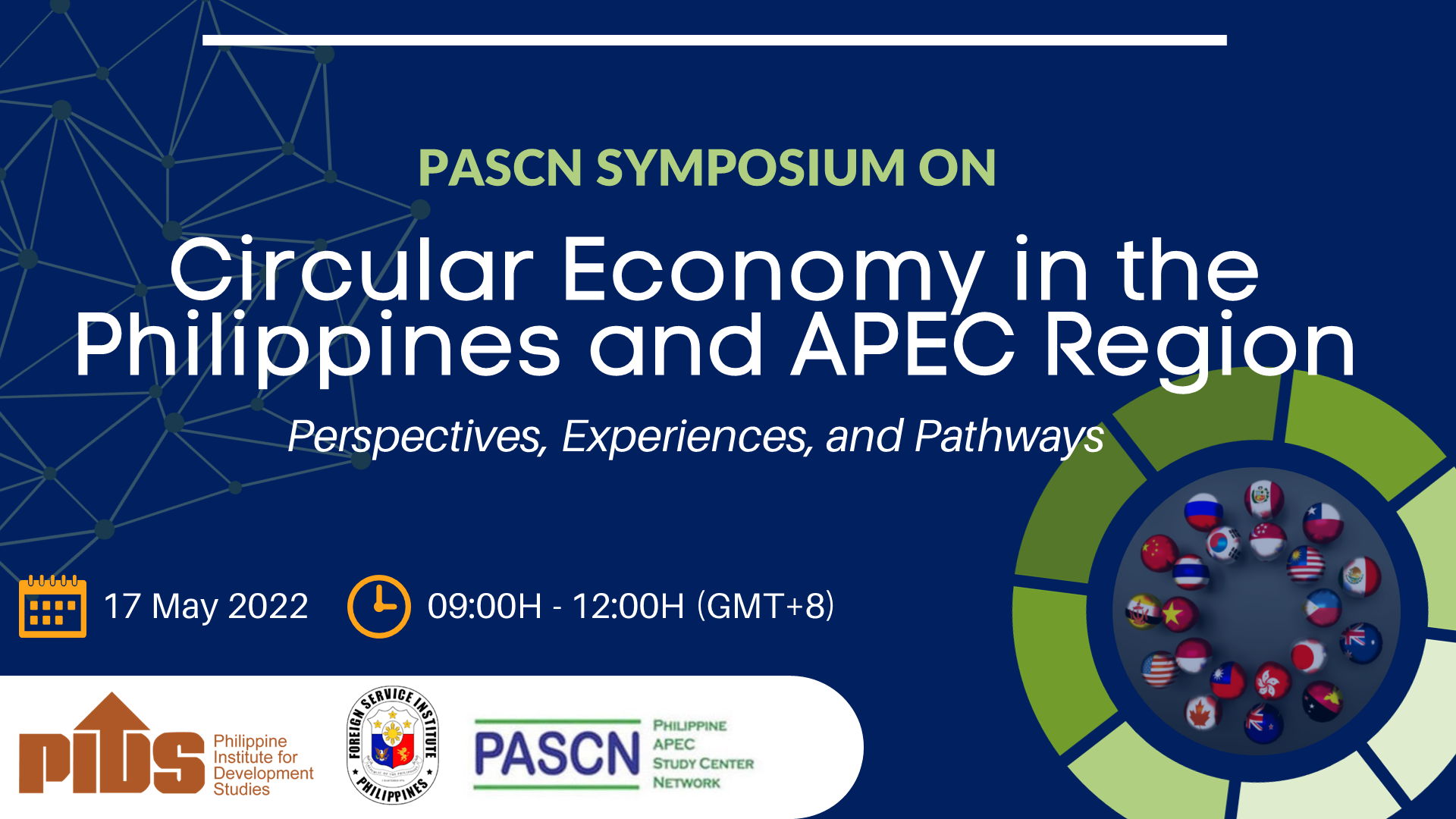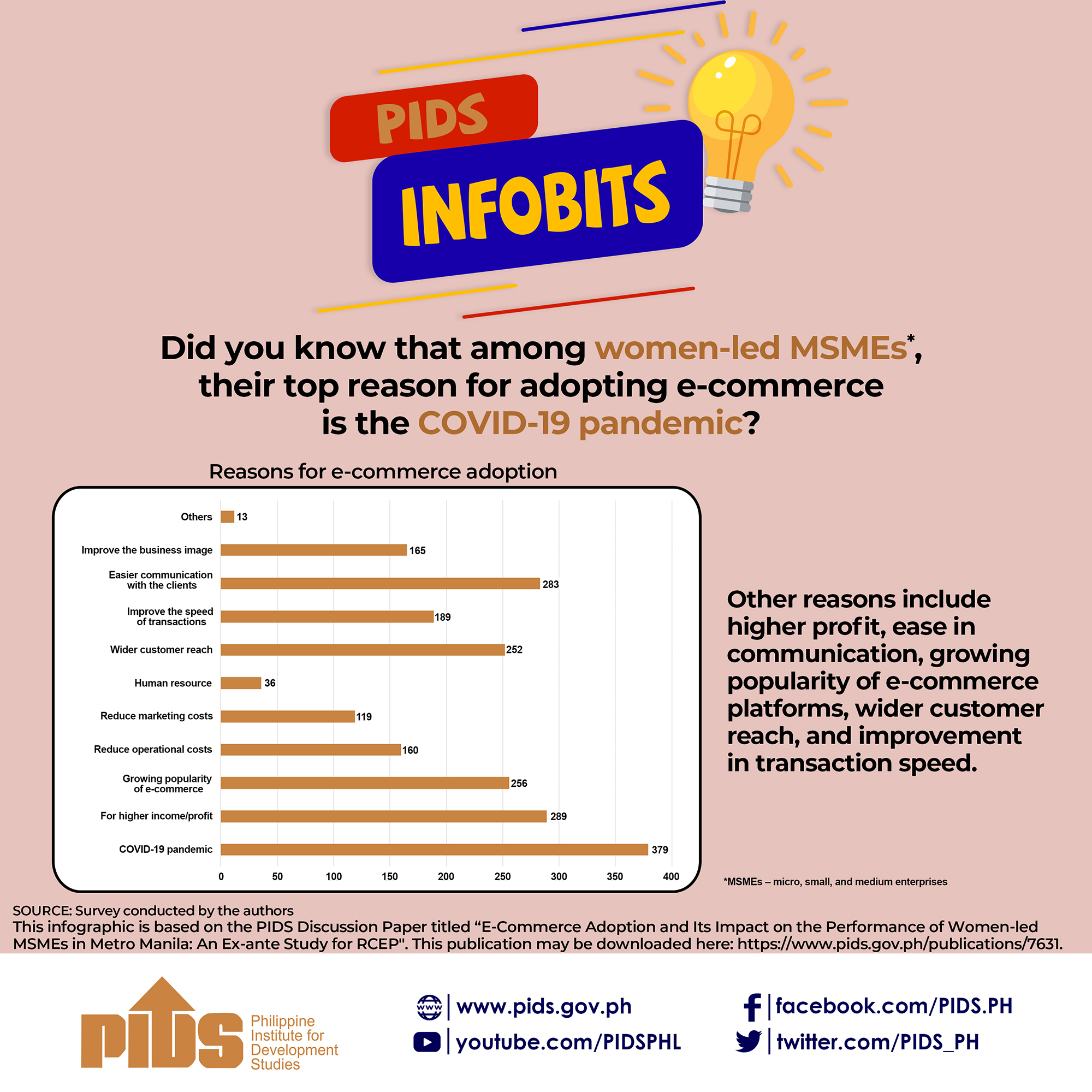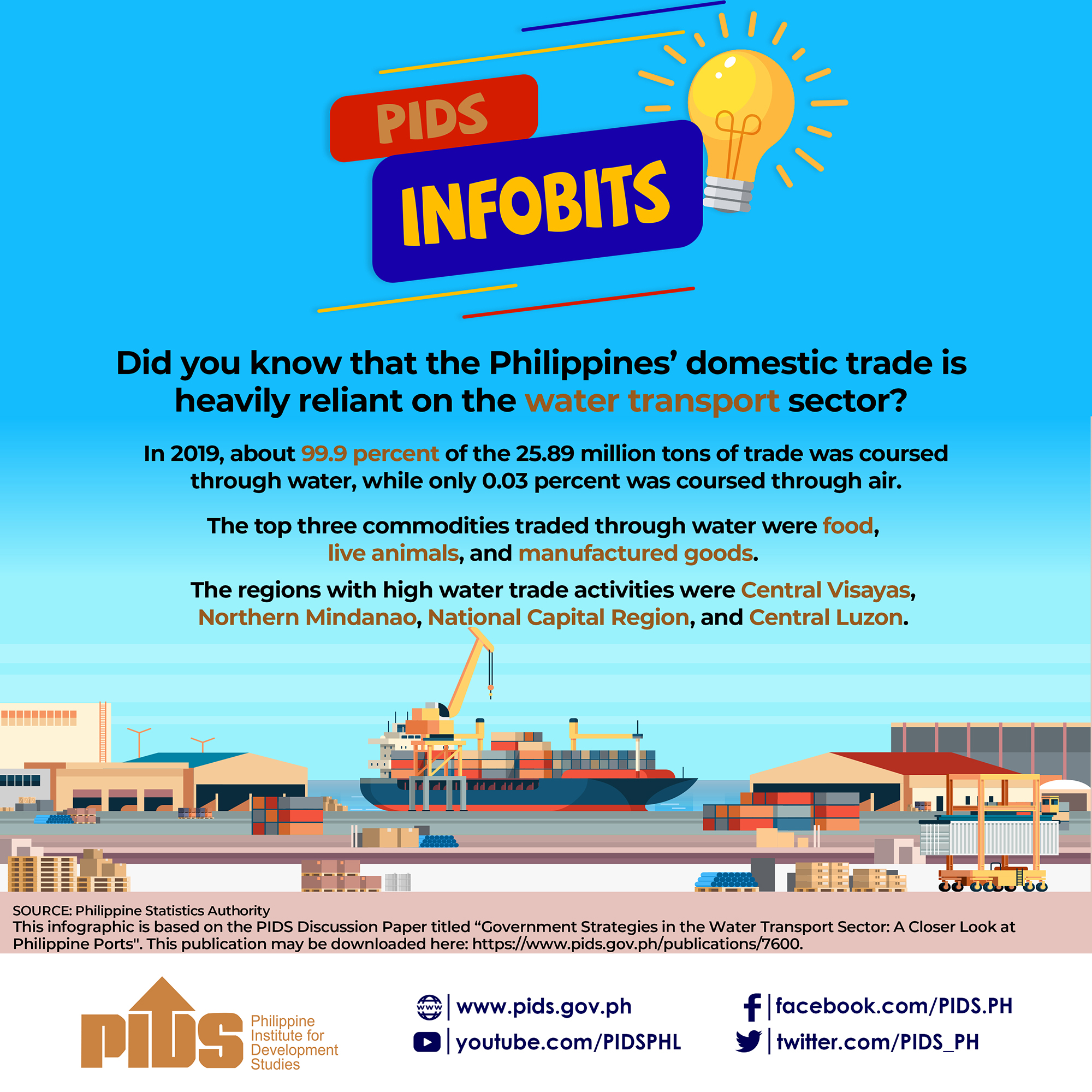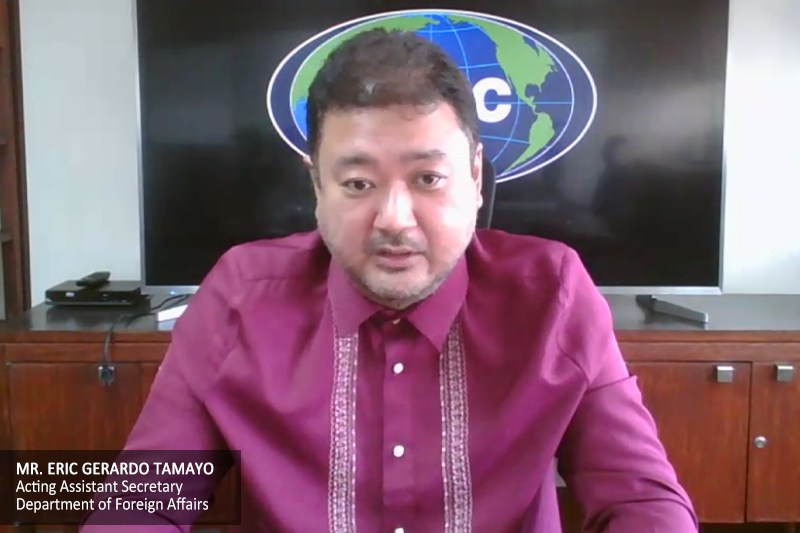
The Asia-Pacific Economic Cooperation (APEC), an organization that promotes free trade and economic cooperation in the Asia-Pacific region, remains the Philippines' most important multilateral engagement.
This was according to Acting Assistant Secretary Eric Gerardo Tamayo of the Department of Foreign Affairs’ Office of the Undersecretary for International Economic Relations during a webinar organized by state think tank Philippine Institute for Development Studies (PIDS) recently. The webinar presented two PIDS studies on APEC, which focused on its role in Philippine trade and investment.
The APEC, which comprises 38 percent of the global population in 2017, accounts for about 60 percent of the world’s gross domestic product. APEC’s share was 47 percent in terms of global trade, with the US, China, and Japan as the biggest contributors.
With the Philippines as one of APEC’s founding members, “majority of [the country’s] economic and commercial transactions around the world occurs within the confines of the 20-member economies,” Tamayo said, adding that 11 of the country’s top 15 trading partners are from APEC.
Moreover, APEC-member economies account for 84 percent of the country’s total trade, with its total export and import worldwide at about 82 percent and 85 percent, respectively. Also, 64 percent of the Philippines’ foreign direct investment come from APEC economies.
In terms of tourism, 83 percent of the country’s tourist arrivals come from APEC member economies. More importantly, about 33 government agencies in the country are “engaged in APEC’s broad agenda ranging from trade and investment, customs procedures and regulatory reforms to women’s economic empowerment, mental health, and health industry ethics”.
The DFA official also highlighted that one of the benefits of being a member-economy of APEC is the access to funds, which is devoted to building capacities in the region. The last five years saw projects in the Philippines that had funding worth about USD 2.4 million (or over PHP 115 million), Tamayo said. Member-countries are also given the privilege to participate in APEC-sponsored workshops, seminars, and research.
APEC has also contributed to the region in terms of ease of doing business. It also helped set up standards and facilitated the sharing of best practices on economic reforms among member-economies.
On the other hand, the Philippines has had its contributions to the APEC, having hosted two APEC summits in 1996 and 2015. These resulted in various action plans to improve trade and development in the region.
Moving forward, Tamayo enumerated several issues that the APEC should watch out for, including the trade tensions between the US and China, the rapid developments brought about by the Fourth Industrial Revolution, as well as the impacts of the COVID-19 pandemic, among others.
Watch the video of this seminar at https://www.facebook.com/PIDS.PH/videos/419335275903964. For more videos of PIDS events, go to https://www.pids.gov.ph/videos.
This was according to Acting Assistant Secretary Eric Gerardo Tamayo of the Department of Foreign Affairs’ Office of the Undersecretary for International Economic Relations during a webinar organized by state think tank Philippine Institute for Development Studies (PIDS) recently. The webinar presented two PIDS studies on APEC, which focused on its role in Philippine trade and investment.
The APEC, which comprises 38 percent of the global population in 2017, accounts for about 60 percent of the world’s gross domestic product. APEC’s share was 47 percent in terms of global trade, with the US, China, and Japan as the biggest contributors.
With the Philippines as one of APEC’s founding members, “majority of [the country’s] economic and commercial transactions around the world occurs within the confines of the 20-member economies,” Tamayo said, adding that 11 of the country’s top 15 trading partners are from APEC.
Moreover, APEC-member economies account for 84 percent of the country’s total trade, with its total export and import worldwide at about 82 percent and 85 percent, respectively. Also, 64 percent of the Philippines’ foreign direct investment come from APEC economies.
In terms of tourism, 83 percent of the country’s tourist arrivals come from APEC member economies. More importantly, about 33 government agencies in the country are “engaged in APEC’s broad agenda ranging from trade and investment, customs procedures and regulatory reforms to women’s economic empowerment, mental health, and health industry ethics”.
The DFA official also highlighted that one of the benefits of being a member-economy of APEC is the access to funds, which is devoted to building capacities in the region. The last five years saw projects in the Philippines that had funding worth about USD 2.4 million (or over PHP 115 million), Tamayo said. Member-countries are also given the privilege to participate in APEC-sponsored workshops, seminars, and research.
APEC has also contributed to the region in terms of ease of doing business. It also helped set up standards and facilitated the sharing of best practices on economic reforms among member-economies.
On the other hand, the Philippines has had its contributions to the APEC, having hosted two APEC summits in 1996 and 2015. These resulted in various action plans to improve trade and development in the region.
Moving forward, Tamayo enumerated several issues that the APEC should watch out for, including the trade tensions between the US and China, the rapid developments brought about by the Fourth Industrial Revolution, as well as the impacts of the COVID-19 pandemic, among others.
Watch the video of this seminar at https://www.facebook.com/PIDS.PH/videos/419335275903964. For more videos of PIDS events, go to https://www.pids.gov.ph/videos.

